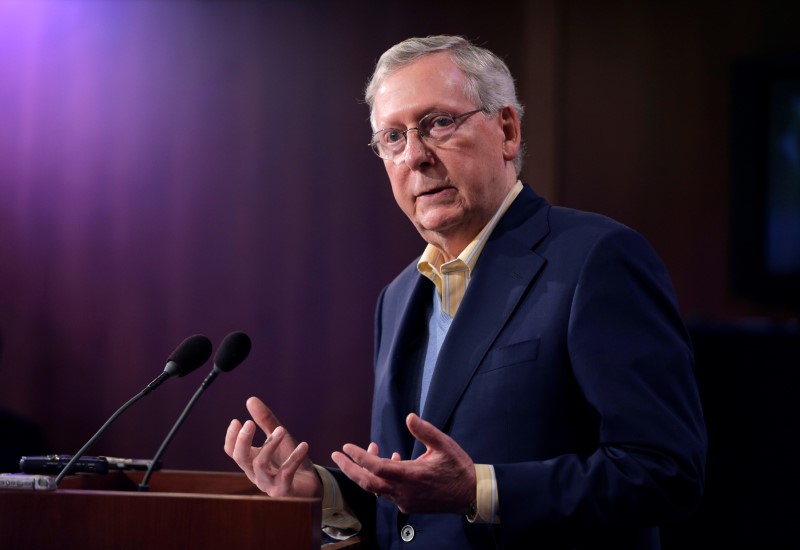By Toni Clarke
WASHINGTON (Reuters) - The U.S. Senate will take its first steps toward repealing President Barack Obama's signature healthcare reform act by the end of the week, Republican Senate Majority Leader Mitch McConnell said on Sunday.
Speaking on CBS's "Face the Nation," McConnell said: "There ought not to be a great gap" between repealing the act and replacing it and that Republicans would be "replacing it rapidly after repealing it."
McConnell did not define what he meant by "rapidly." Another top Republican, House Majority Whip Steve Scalise, told Fox News that it could take two years to fully replace the Affordable Care Act, popularly known as Obamacare.
"I think everybody recognizes that there will be a transition period," Scalise said. "President-elect Trump and our leaders have said nobody is going to get the rug pulled out from underneath them."
Scalise cited a previously proposed Republican bill to repeal the healthcare law that laid out a two-year transition period for putting in place an alternative. "That's a benchmark for what we're looking at again," he added.
Since his election on Nov. 8, Trump, who will be sworn in as Obama's successor on Jan. 20, has made clear he wants to move swiftly on his campaign pledge to repeal and replace the 2010 law.
Republicans have a chance to make good on the Republican president-elect's promise since they control both chambers of Congress. House Republicans took a step last week to clear the decks for Obamacare repeal by approving a procedural rule that would make it harder for Democrats to impede progress on such legislation.
Repealing the act without an immediate replacement raises the question as to what happens to those who have insurance under Obamacare.
On ABC's "This Week," Obama said that while the law could theoretically be repealed, "suddenly 20 million people or more don't have health insurance."
"I think Republicans now are recognizing that may not be what the American people, including even Trump voters, are looking for," he said.
'MAY TAKE TIME'
The healthcare law extended insurance coverage to millions of Americans through an expansion of the Medicaid program for the poor and the creation of online exchanges where consumers can shop for private health insurance coverage. The law also provides for subsidies to help individuals and families afford coverage purchased on the exchanges.
Reince Priebus, Trump's incoming White House chief of staff, told "Face the Nation" that while repealing and replacing Obamacare all at once would be ideal, it "may take time" to get all elements of the new plan ready.
Obamacare came under renewed criticism recently after the government disclosed that benchmark 2017 Healthcare.gov premiums would rise 25 percent compared with 2016. Several large health insurers have withdrawn from the market, saying they are losing money.
Obama said he expected the law to survive, albeit in a modified form.

"If in fact the Republicans make some modifications," he said, "and re-label it as Trumpcare, I'm fine with that."